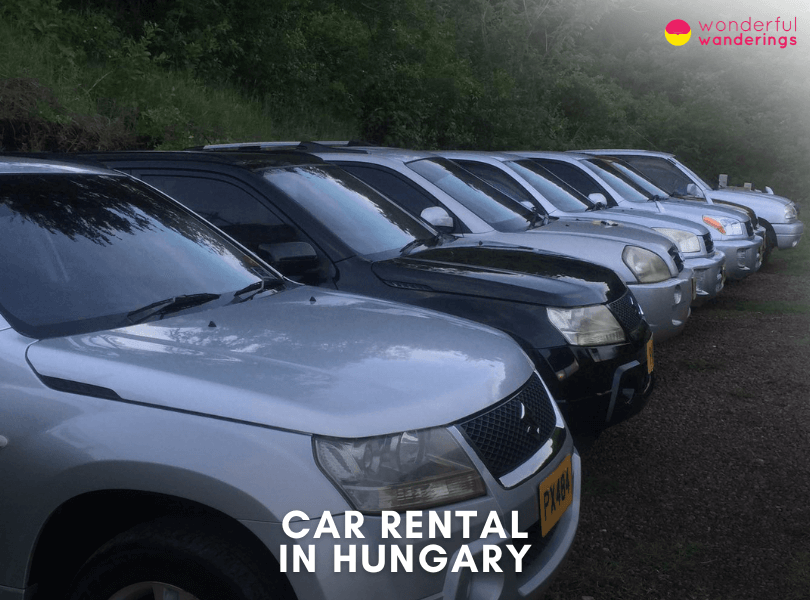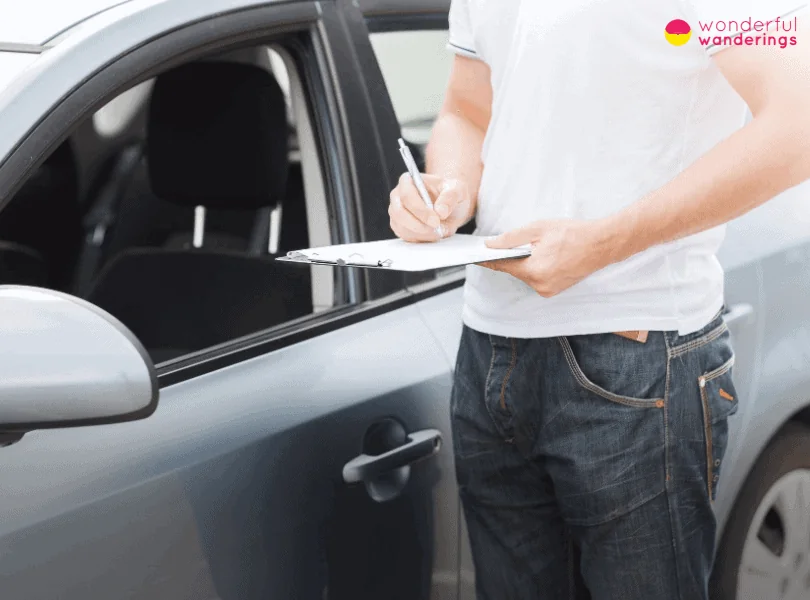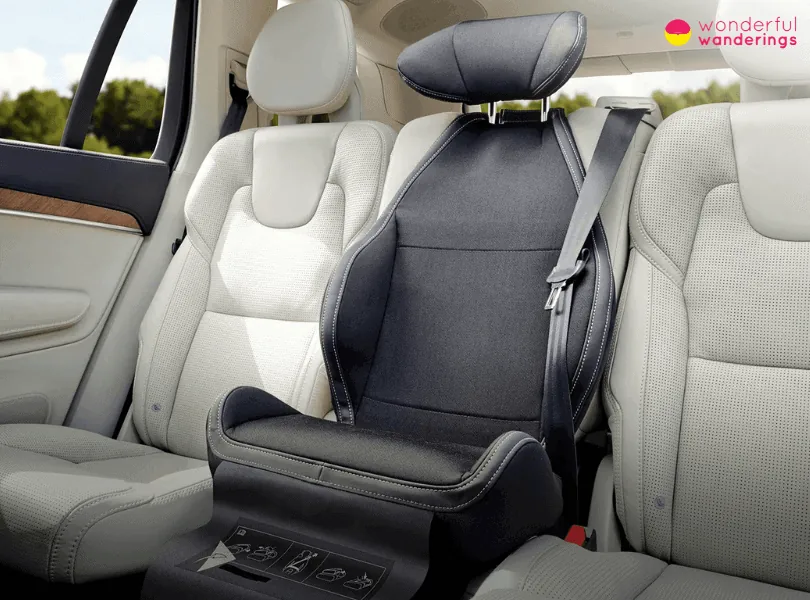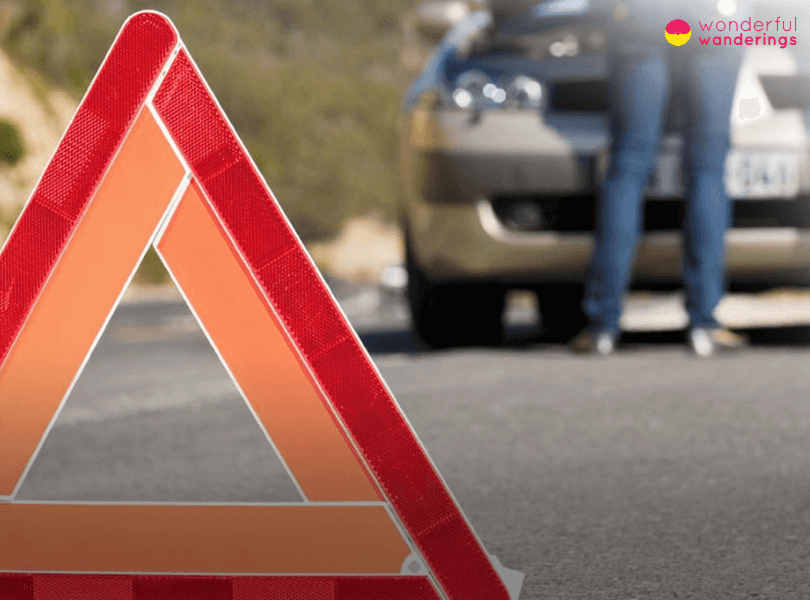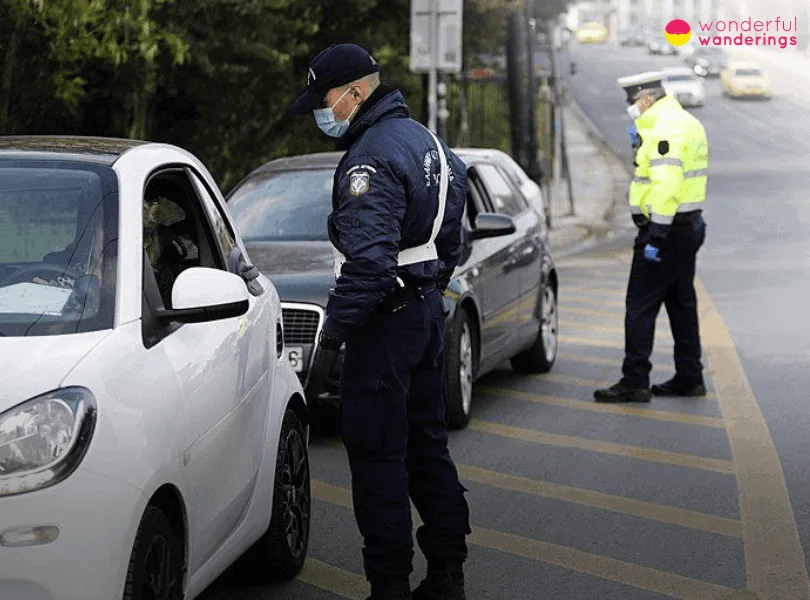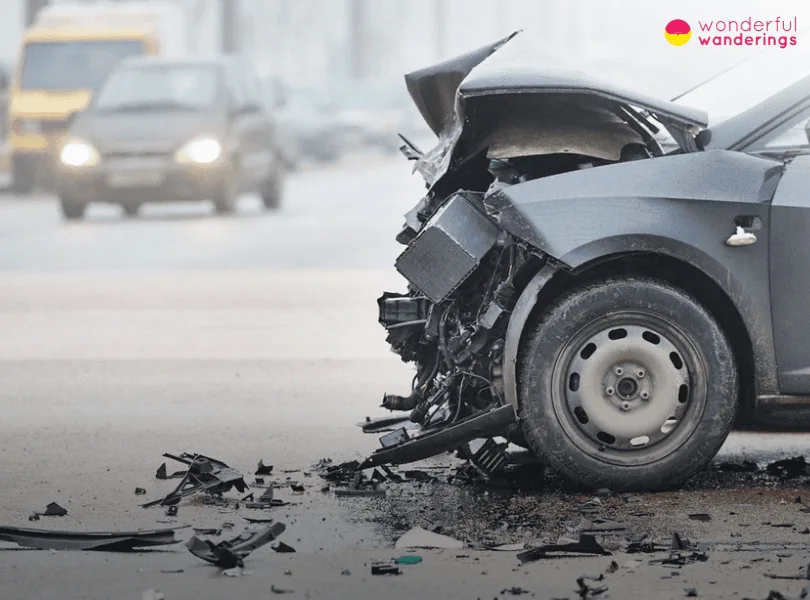Renting a car in Hungary is a convenient and popular option for travelers exploring the country. Hungary offers a well-developed network of roads and highways, making navigating and reaching various destinations easy. Renting a car provides flexibility and freedom to explore at one’s own pace. There are several car rental companies operating in Hungary, both international and local. These companies offer various vehicles to suit different needs and budgets. The rental process is straightforward, requiring a valid driver’s license, passport, and credit card for payment and deposit purposes. Booking a car in advance is recommended to secure the best rates and availability.
The average car rental cost in Hungary starts from 20€ ($21.8, £17.4) to 50€ ($54.5, £43.5). This price may include standard insurance coverage and unlimited mileage for a certain duration. Additional fees for extras such as GPS navigation systems, child seats, or additional drivers may apply. For larger vehicles or luxury cars, the rental prices can be higher, ranging from 50€ ($54.5, £43.5) to 150€ ($163.5, £130.5) per day, depending on the specific model and rental company. It is also worth noting that the rental cost can vary depending on the location. In major cities like Budapest, car rental prices might be slightly higher compared to smaller towns or less touristy areas.
Listed below are the top tips for car rental in Hungary:
- License to rent a car in Hungary: A valid driver’s license from the renter’s country of residence is required to rent a car in Hungary. The license must be presented at the rental location and should either be in the Latin alphabet or accompanied by an international driving permit. Failure to show a valid license will result in denial of a rental car.
- Age and Experience Requirement: The minimum age to rent a car in Hungary is 21 years old. Renters must also have held a valid license for at least one year to demonstrate driving experience and familiarity with road regulations. Some companies may have additional age restrictions.
- Credit Card Requirements: A credit card in the renter’s name is typically mandatory to rent a car in Hungary. The card serves as payment for rental charges and a refundable deposit to cover any damages or fees incurred. Debit cards or cash are generally not accepted.
- Guarantee – Credit card hold: A deposit ranging from 300€ to 1000€ is usually held against the renter’s credit card when renting a car in Hungary. This guarantees rental companies can recover costs from damages, violations, or unpaid fees that occur during the rental period.
- Best period to rent and book: The best times to rent a car in Hungary are the shoulder seasons of spring and fall when prices are lower and availability is higher compared to the peak summer months. Advance booking, especially in summer, secures preferred vehicles.
- Pickup / Return Location and Times: Choosing airport or city rental locations depends on convenience and potential added airport surcharges. Rental rates are typically daily regardless of pickup time but confirm night policies.
- Recommendations for car size and engine: Compacts suit cities while mid-size vehicles with more power accommodate longer trips and countryside driving. Reliable models like VW Golf or Toyota Corolla suit most needs.
- Transmission type (Manual or Automatic): Automatic transmissions are strongly recommended for simplicity and ease of use driving Hungary’s varying roads, unless renters are very accustomed to manual vehicles.
- Fuel choice (Diesel, Gas or electric): Gasoline engines are most readily available and suitable for shorter trips while diesel offers better fuel efficiency for extended highway journeys. Confirm required fuel type for the rental car.
- 4×4 rental in Hungary: 4×4 vehicles are only needed to handle remote, unpaved areas and specialized activities. Hungary’s roads and most tourist destinations are accessible by regular passenger cars.
- RV rentals in Hungary: RV rentals provide transportation and accommodation for the flexibility to travel Hungary’s scenic routes at one’s own pace. Advance booking secures availability.
- Car rental Prices in Hungary: Daily rental rates for compact cars range 20-40€, while larger vehicles range 40-80€. Additional costs may apply for extras like GPS or insurance. Fuel, tolls, parking and fines are extra expenses.
1. License to rent a car in Hungary
A license is required when renting a car in Hungary. Renters must possess a valid driver’s license from their country of residence, which should be presented at the time of rental. The driver’s license should be in the Latin alphabet or accompanied by an international driving permit (IDP) if it is not. Failure to present a valid license may result in the rental company refusing to provide a vehicle. It is essential to ensure the license is valid and not expired before renting a car in Hungary.
2. Age and Experience Requirement
The minimum age to rent a car in Hungary is typically 21. Renters must be at least 21 and hold valid driver’s licenses for at least one year. Some rental companies may have additional age restrictions or requirements for certain vehicle categories, so checking their age policies with the specific rental company is advisable. There is usually no maximum age limit to rent a car in Hungary. As long as the renter meets the minimum age requirement and holds a valid driver’s license, they can rent a car regardless of age. Some rental companies may have policies regarding older drivers, such as requiring a medical certificate or additional insurance coverage. When making a reservation, it is recommended to inquire about any specific requirements or restrictions related to age. Renters in Hungary need to have held a valid driver’s license for at least one year. The requirement ensures that renters have a certain driving experience and familiarity with the road rules. Through having at least one year of driving experience, renters are generally considered to have a basic understanding of operating a vehicle, contributing to safer driving practices on the roads of Hungary. It also helps rental companies assess the renter’s ability to handle a rental car responsibly.
3. Credit Card Requirements
In Hungary, a credit card is typically required to rent a car. Rental companies usually require renters to present a valid credit card in the primary driver’s name at the time of rental. The credit card serves as a form of payment for the rental charges and a security deposit to cover any potential damages or additional fees incurred during the rental period. Debit cards or cash payments are generally not accepted as a substitute for a credit card, although some rental companies may offer alternative payment options, such as pre-paid cards or electronic funds transfers.
The requirement for a credit card when renting a car in Hungary is primarily for security and financial purposes. The credit card guarantees that the rental company can charge the rental fees, any additional charges, or damages directly to the card if necessary. It also allows for a smoother and more efficient payment process, as the rental charges can be processed electronically. The credit card serves as a means of verifying the renter’s identity and ensuring that they have a reliable source of funds to cover the rental expenses. It is important for those planning to rent a car in Hungary to have a valid credit card in their name.
4. Guarantee – Credit card hold
When renting a car in Hungary, a deposit is typically required. The deposit amount may vary depending on the rental company and the type of vehicle rented. On average, the deposit held can range from 300€ ($327, £261) to 1000€ ($1090, £870). This amount is usually authorized on the renter’s credit card at the start of the rental period.
The deposit serves as a security measure for the rental company in case of any damages, traffic violations, or unpaid fees incurred during the rental period. It helps protect the rental company’s assets and covers potential financial liabilities. Through holding a deposit, the rental company can ensure that they have the means to recover any costs associated with the rental, such as repairs, fines, or cleaning fees. Once the rental period ends and the vehicle is returned without issues, the deposit is typically released back to the renter’s credit card, subject to any deductions for charges or damages. Renters need to review the terms and conditions of the rental agreement to understand the specific deposit requirements and procedures of the rental company they choose.
5. Best period to rent and book
The best period to rent a car in Hungary is typically during the shoulder seasons of spring, from April to June, and fall, from September to October. The weather is pleasant during these months, with mild temperatures ranging from10°C (50°F) to 20°C (68°F). The demand for rental cars is usually lower compared to the peak summer season, resulting in potentially lower rental rates and a greater availability of vehicles. It is important to note that specific events or holidays may affect rental availability and prices, so it is advisable to check for any major events or festivals during the desired rental period.
Visitors to Hungary should book their car rental in advance, especially during the peak summer months, from July to August, and major holidays. Booking in advance allows visitors to secure their preferred vehicle type and ensures a higher chance of availability, especially during busy periods. It provides the opportunity to benefit from discounted rates or promotional deals offered by rental companies. Through planning and making a reservation in advance, visitors can have peace of mind knowing that their transportation needs are taken care of and can focus on enjoying their trip to Hungary.
6. Pickup / Return Location and Times
Airport pickup can be convenient for those arriving by air, allowing immediate access to a rental car. It eliminates the need for additional transportation from the airport to the town rental location. Town pickup may be more suitable for those already in the town or who prefer to pick up their rental car at a specific location. It is recommended to consider factors such as convenience, proximity to the rental location, and transportation arrangements when deciding between airport or town pickup in Hungary.
The airport pickup or return cost in Hungary may vary depending on the rental company and specific location. An additional fee may be associated with airport pickup or return, commonly known as an airport surcharge. This fee is intended to cover the expenses incurred by the rental company for operating at the airport, such as higher taxes or facility charges. Comparing the exact cost difference between airport pickup and return versus town pickup and return would require specific information from the rental company, as the surcharge amounts can vary. It is advisable to inquire with the rental company directly about any additional fees and compare the total costs for both options to determine the most economical choice.
Rental companies often have standard daily rates that apply regardless of the pickup time, but checking the rental company’s policies is important, as some may have specific rules or charges for after-hour pickups or drop-offs. If there are additional fees for nighttime service, they are typically disclosed by the rental company. Some rental companies may impose a fee for after-hours delivery, while others may not. It is advisable to check with the rental company directly to inquire about any potential fees or charges associated with night delivery when renting a car in Hungary.
7. Recommendations for car size and engine
Hungary has a diverse landscape including urban areas, highways, and rural roads. A smaller car size is more convenient for urban driving and navigating through crowded city streets due to easier parking and maneuverability in tight spaces. A compact or economy-sized car would be suitable for urban driving in Hungary. For longer trips or exploring the countryside, consider a car with a slightly larger engine size to ensure comfortable cruising on highways and handling the occasional hilly terrain. A mid-size or full-size car with a more powerful engine would be a good choice for such journeys. This would provide enough power to handle different road conditions and offer a smoother driving experience.
Popular car models from reputable rental companies, such as compact cars like the Volkswagen Golf or Ford Focus or mid-size cars like the Skoda Octavia or Toyota Corolla, are often chosen by renters due to their reliability, fuel efficiency, and versatility. It is advisable to check with the rental company for available car models, compare their features, and select one that best suits the planned itinerary and personal requirements for a comfortable and enjoyable driving experience in Hungary.
8. Transmission type (Manual or Automatic)
When renting a car in Hungary, choosing a car with an automatic transmission is recommended. Most rental cars in Hungary are equipped with automatic transmissions, making them more readily available and easier to operate for individuals not accustomed to driving manual transmission vehicles. Automatic transmissions provide a smoother driving experience, especially in urban areas with heavy traffic, as they eliminate the need for constantly shifting gears, allowing drivers to focus more on the road. Navigating unfamiliar roads and adapting to different driving conditions can be less stressful with an automatic transmission. It provides convenience and simplicity, particularly when driving on highways or in hilly regions. Automatic transmissions make it easier to start and stop on inclines or in stop-and-go traffic situations, reducing the likelihood of stalling or rolling backward.
9. Fuel choice (Diesel, Gas or electric)
When renting a car in Hungary, there are primarily two fuel options: gasoline (petrol) and diesel. Gasoline, also known as petrol, is Hungary’s most commonly used fuel. It is suitable for most rental cars and is widely available nationwide at fuel stations. Gasoline engines offer smoother acceleration and are generally quieter than diesel engines. They are also preferred for shorter trips or city driving due to their ease of use and availability.
Diesel fuel is an alternative option available for rental cars in Hungary. Diesel engines are known for their fuel efficiency and torque, making them suitable for longer journeys or highway driving. Diesel fuel is generally priced lower than gasoline in Hungary, which can benefit travelers looking to save on fuel costs. Diesel rental cars may have a higher rental rate than gasoline cars due to the higher demand and popularity of diesel engines in certain regions.
It is recommended to check with the rental company about the fuel type required for the specific car being rented in Hungary. Most rental cars will have a label indicating the appropriate fuel type. It is essential to use the correct fuel to ensure optimal performance and avoid any potential damage to the rental vehicle. Fuel stations in Hungary typically accept major credit cards and cash for fuel purchases, providing convenience for travelers.
10. 4×4 rental in Hungary
Renting a 4×4 vehicle when visiting Hungary is not typically required for most travelers. Hungary has a well-developed road infrastructure, including well-maintained highways and paved roads that connect various cities and towns. These roads are accessible and suitable for regular passenger cars.
A 4×4 vehicle, also known as an SUV or off-road vehicle, is recommended for individuals planning to venture off the beaten path and explore remote or rural areas with rough terrains. If travelers intend to visit specific natural reserves or mountainous regions or engage in outdoor activities that require navigating unpaved roads, a 4×4 vehicle may be beneficial for better traction and stability, but for most typical itineraries involving cities, towns, and popular tourist destinations in Hungary, a regular car with standard road capabilities is sufficient.
11. RV rentals in Hungary
RV rental options are available in Hungary for those who prefer to explore the country with a recreational vehicle. RV rentals offer the flexibility of having both transportation and accommodation in one vehicle, allowing travelers to experience the freedom of the open road while enjoying the comforts of a home on wheels. RVs, also known as motorhomes or campervans, come in various sizes and configurations to cater to different group sizes and travel preferences.
Rental companies in Hungary provide a range of RV options, including compact campervans suitable for couples or small families and larger motorhomes that can accommodate larger groups. These vehicles often come equipped with amenities such as sleeping quarters, kitchen facilities, and bathroom facilities, offering convenience and comfort during the trip. RV rentals allow travelers to explore Hungary at their own pace, visiting multiple destinations and enjoying the country’s scenic landscapes, cultural attractions, and outdoor activities.
It is recommended to book an RV rental in advance, especially during peak travel seasons, to ensure availability and secure the desired vehicle type. Rental rates for RVs in Hungary can vary depending on the size, model, rental duration, and additional features. Travelers should also familiarize themselves with local regulations and guidelines for driving and parking RVs in Hungary to ensure a smooth and enjoyable travel experience.
12. Car rental Prices in Hungary
The cost of renting a car in Hungary can vary depending on several factors, such as the rental company, duration of the rental, type of vehicle, and any additional services or insurance options chosen. On average, daily rental rates for a basic economy or compact car in Hungary can range from 20€ ($21.8, £17.4) to 40€ ($43.6, £34.8). This price usually includes unlimited mileage and basic insurance coverage. For larger or more premium car models, the rental rates can range from 40€ ($43.6, £34.8) to 80€ ($87.2, £69.6) per day. It is important to note that prices are subject to change, especially during peak travel seasons or special events. Additional costs may apply to extras such as GPS navigation, child seats, or additional drivers.
It is advisable to compare prices from different rental companies, consider any special offers or discounts, and carefully review the terms and conditions before making a reservation. Travelers should budget for other expenses such as fuel, tolls, parking fees, and potential fines or penalties for traffic violations.
13. What to think before selecting a car rental company in Hungary
There are 5 major things to consider before selecting a car from a rental company in Hungary. Firstly, it is crucial to consider the reputation and reliability of the rental company. This includes checking customer reviews and ratings to gauge the company’s customer satisfaction and service quality. A reputable rental company will likely provide reliable vehicles, transparent pricing, and excellent customer support. Secondly, the range of available vehicles is an important consideration. Travelers have different needs, so choosing a rental company that offers a diverse selection of cars to suit individual preferences and group sizes is essential. Whether it is a compact car for city driving or a spacious SUV for a family trip, having options ensures finding the right vehicle for the specific travel requirements. Thirdly, the rental terms and conditions should be carefully reviewed. Pay attention to details such as rental duration, mileage limits, and any additional applicable fees or charges. Understanding the terms and conditions in advance helps avoid surprises and clarifies what is included in the rental price. Fourthly, the rental rates and pricing structure are significant considerations. It is important to compare prices from different rental companies to find the most competitive rates. It is equally important to consider the overall value for money, considering factors such as the condition of the vehicle, included services, and any additional benefits or discounts offered by the rental company. Lastly, the customer support and assistance the rental company provides are crucial. A reliable rental company should offer responsive customer service and be readily available to address any concerns or issues that may arise during the rental period. Prompt support can make a significant difference in resolving any unexpected situations or emergencies efficiently.
14. Top car rental companies in Hungary
There are 3 top car rental companies in Hungary. Firstly, Avis is highly regarded for its reliable service, well-maintained vehicles, and transparent pricing. Customers appreciate the wide range of available car options, ensuring everyone can find a suitable vehicle. Avis also stands out for its excellent customer support, providing prompt assistance and resolving issues efficiently. Secondly, Europcar is another top-rated car rental company in Hungary. Customers praise Europcar for its professional and friendly staff, who offer helpful advice and guidance throughout the rental process. The company’s fleet of vehicles is known for being clean and well-maintained, ensuring a comfortable and hassle-free driving experience. Europcar’s competitive pricing and flexible rental options also contribute to its positive reputation among customers. Lastly, Budget is recognized for its affordable rates and high-quality vehicles. Customers appreciate the transparent pricing structure and the absence of hidden fees. Budget’s vehicles are regularly serviced, ensuring reliability on the road. The company’s customer service is highly regarded, with attentive, responsive, and knowledgeable staff members. Budget’s emphasis on customer satisfaction has earned it a place among Hungary’s top-rated car rental companies.
15. Save money on automobile rentals in Hungary
Visitors can save money on automobile rentals in Hungary in 3 main ways. Firstly, comparing prices from different rental companies is essential. Travelers can identify the most affordable options by obtaining quotes from multiple providers. Online platforms and comparison websites are valuable resources for quickly and easily comparing prices and finding the best deals on cheap car rentals in Hungary. Secondly, booking in advance can lead to significant cost savings. Travelers can take advantage of early bird discounts and promotional offers by reserving a car rental well before the travel date. Booking early ensures a wider selection of available vehicles, increasing the chances of securing a cheap car rental in Hungary. Lastly, watching for special deals and discounts is a great way to save money on car rentals. Rental companies often offer seasonal promotions, loyalty programs, or discounted rates for longer rental periods. Subscribing to newsletters or following rental companies on social media can provide access to exclusive deals and limited-time offers, helping travelers find cheap car rental options in Hungary.
16. Typical Opening hours of car rental companies in Hungary
Airport car rental companies in Hungary typically operate during regular airport hours. The usual opening hours of these rental companies align with the airport’s operational schedule. Most airport car rental desks are open from early morning until late evening, providing convenient access to rental services for arriving and departing passengers.
The opening hours may vary slightly depending on the airport and rental company. It is common for airport car rental desks to be open from 06:00 am to 11:00 pm. These extended hours allow travelers to pick up or return their rental cars before or after their flights, accommodating various travel schedules.
Travelers need to check the opening hours of their chosen rental company in advance, as some smaller airports or rental providers may have more limited hours of operation. It is advisable to make a reservation in advance to ensure availability and to provide the rental company with the necessary flight information, enabling them to better accommodate any potential delays or changes in travel plans.
17. Car rental scams in Hungary
There are 5 common car rental scams in Hungary. Firstly, one of the scams involves misleading fuel policies. Some rental companies may require customers to pay for a full fuel tank up front and return the car empty, which can result in customers paying for more fuel than they use. It is crucial to carefully review the fuel policy and opt for rental companies that offer fair and transparent fuel options. Secondly, the excess insurance scam is another common issue. Rental companies may pressure customers into purchasing expensive excess insurance, claiming that it is necessary to avoid high costs in case of damage or accidents. Customers often find out later that they were charged for unnecessary coverage. It is recommended to carefully read the rental agreement, understand the insurance coverage included, and consider purchasing excess coverage from a reputable third-party provider. Thirdly, customers should be cautious of hidden charges. Some rental companies in Hungary may advertise low prices initially but add additional charges during the rental process. These charges can include fees for extras such as GPS, child seats, or additional drivers. It is important to carefully review the rental agreement and ask for clarification on any potential additional charges before finalizing the booking. Fourthly, customers should be wary of inflated damage claims. Rental companies may charge customers for pre-existing damages or exaggerate the cost of repairs. It is crucial to thoroughly inspect the vehicle before accepting it and document any existing damages in writing or with photographs. This helps avoid being held responsible for damages not caused during the rental period. Lastly, customers should be cautious of rental companies that require cash payments or request payment through unofficial channels. Legitimate rental companies in Hungary typically accept credit cards or online payments. Paying in cash or through unofficial channels can make it difficult to dispute charges or obtain refunds in case of any issues.
18. Cross-board rentals
Renters are not allowed to change countries when renting a car in Hungary. Car rental agreements are typically limited to the country where the rental took place. This means that renters are expected to use the rented vehicle within the borders of Hungary and are prohibited from crossing into other countries without prior authorization from the rental company.
Renting a car in one country and driving it to another can pose various challenges and complications. Countries may have different driving laws, road regulations, and insurance requirements. Rental companies often have specific agreements and arrangements with their vehicles that are applicable only within the country of rental. Renters must adhere to these restrictions to avoid any legal or insurance-related issues.
It is essential for renters to thoroughly review the terms and conditions of the rental agreement before finalizing their booking. If there is a requirement or desire to travel to another country, renters should inquire with the rental company in advance and obtain explicit permission and any necessary documentation. Failure to comply with these restrictions may lead to additional charges, voided insurance coverage, or other legal complications.
19. Car Rental Insurance
There are 3 common packages when renting a car in Hungary. Firstly, the Collision Damage Waiver (CDW) is a standard insurance option that covers damages to the rental vehicle in the event of an accident. It typically has an excess amount that the renter is responsible for paying in case of damage. Renters should carefully review the terms and conditions of the CDW to understand the coverage and excess amount. Secondly, renters can opt for the Super Collision Damage Waiver (SCDW) or Extended Collision Damage Waiver (ECDW). These packages reduce or eliminate the excess amount, providing more comprehensive coverage and minimizing the renter’s financial responsibility in case of damage. They come at an additional cost, which varies depending on the rental company and the specific terms of the insurance package. Lastly, renters can also consider Personal Accident Insurance (PAI). This coverage provides medical expenses and personal accident benefits in the event of an accident during the rental period. It protects the driver and passengers, ensuring their well-being and financial security in case of injury.
When deciding which insurance package to purchase, renters should consider their needs and circumstances. The CDW is often the most basic and commonly included option, providing a certain level of coverage. Choosing SCDW or ECDW can benefit those who want to minimize their financial liability and have more comprehensive coverage. It is important to carefully read and understand the terms and conditions of the insurance packages, including any exclusions or limitations.
There are other car rental insurance alternatives available. Renters can choose to purchase excess insurance from third-party providers. These policies typically cover the excess amount specified in the rental agreement, offering an extra layer of protection. Renters may have coverage through their personal car insurance or credit card providers. It is advisable to check with these entities beforehand to understand the extent of coverage and any applicable requirements or limitations.
20. Roadside assistance
Adding road assistance when renting a car in Hungary is recommended to ensure a smooth and worry-free driving experience. Road assistance provides valuable support in case of unexpected events such as breakdowns, flat tires, or other mechanical issues that may occur during the rental period. It offers peace of mind and helps renters avoid inconvenience and potential additional costs associated with such situations. The cost of road assistance can vary depending on the rental company and the level of coverage selected. On average, road assistance may cost 5€ ($5.45, £4.35) to 10€ ($10.9, £8.7) per day. Renters should carefully review the terms and conditions of the road assistance package, including any limitations or exclusions, before deciding.
21. GPS Sat Nav Navigator
Adding GPS satellite navigation when renting a car in Hungary is highly recommended, especially for those unfamiliar with the area or planning to explore different destinations. A GPS navigation system provides reliable and accurate directions, making navigating unfamiliar roads and cities easier. It helps ensure a smoother and more efficient travel experience, allowing renters to reach their desired destinations and avoid getting lost easily.
The cost of adding GPS satellite navigation to a rental car in Hungary can vary depending on the rental company and the rental duration. On average, it may cost 5€ ($5.45, £4.35) to 15€ ($16.35, £13.05) per day. There may be additional costs associated with renting a GPS navigation system, but the convenience and peace of mind it provides are often worth the investment, especially for those who value reliable and hassle-free navigation during their travels.
22. Additional driver charges
The cost for an additional driver when renting a car in Hungary can vary depending on the rental company and the rental duration. On average, adding a driver may cost 5€ ($5.45, £4.35) to 15€ ($16.35, £13.05) per day. Adding a driver allows for sharing driving responsibilities and flexibility, especially during long journeys. Renters should consider the additional cost of adding a driver when budgeting for their car rental in Hungary. It may incur an extra expense, but having an additional driver can enhance the convenience and comfort of the trip, particularly for those planning to cover long distances or share driving duties.
23. Child Seats: Safety rules with car rental in Hungary
In Hungary, child seat requirements are in place to ensure the safety and well-being of young passengers. Renters should choose a rear-facing child seat for infants up to 9 months old or weighing less than 13 kilograms (28 pounds). This type of seat provides optimal protection for an infant’s fragile neck and spine in the event of a collision. It is recommended that renters select a rear-facing child seat for infants due to their vulnerable physical development at this stage. For older babies between 9 months and 3 years old or weighing 9 kilograms (20 pounds) and 18 kilograms (40 pounds), renters should opt for a forward-facing child seat with a harness. These seats are designed to secure the child and provide protection in a collision. They offer a higher level of support and safety for older babies who have developed stronger neck and spine muscles.
Renters should choose a booster seat for toddlers between 3 and 12 years old or weighing 15 kilograms (33 pounds) and 36 kilograms (79 pounds). Booster seats help position the child properly in the vehicle’s seat belt system, ensuring a secure fit and adequate protection. Booster seats allow for the proper alignment of the seat belt across the child’s body by raising the child to the appropriate height, reducing the risk of injury in an accident. The cost of renting a child seat in Hungary can vary depending on the rental company and duration. A child seat may cost 5€ ($5.45, £4.35) to 10€ ($10.9, £8.7) per day. Renters should factor in the cost of a child seat when planning their budget, as the safety and well-being of young passengers are of utmost importance.
24. Take pics of the car during pick-up
Visitors should take pictures of the rental vehicle during the pickup process in Hungary to protect themselves from potential disputes or additional charges. Renters have visual evidence to support their claim if the rental company accuses them of causing damage or returning the vehicle in a different condition by capturing photographs of the vehicle before driving off. These pictures act as insurance, ensuring that renters are not liable for pre-existing damages or issues with the vehicle. If there are any discrepancies, renters can provide the rental company with photographic evidence, making resolving disputes easier and avoiding unnecessary charges. It is a simple yet effective way to protect oneself and ensure a fair and transparent car rental experience in Hungary.
25. Mandatory equipment in rental cars in Hungary
There are 4 mandatory pieces of equipment in rental cards in Hungary. Firstly, a reflective safety vest is mandatory equipment in Hungary. This vest must be within reach of the driver and worn in case of a breakdown or emergency situation on the road. The safety vest enhances visibility and helps other drivers and emergency services identify individuals on the roadside, reducing the risk of accidents and ensuring the safety of all parties involved. Secondly, a warning triangle is another mandatory piece of equipment when renting a car in Hungary. The warning triangle should be placed 50 meters (164 feet) behind the vehicle in case of a breakdown or accident. It alerts other drivers of the presence of a stopped or disabled vehicle, allowing them to take necessary precautions and avoid collisions. The warning triangle is an essential safety measure that helps maintain traffic flow and prevents further accidents. Thirdly, carrying a first aid kit in the rental vehicle is mandatory. The first aid kit should be easily accessible and contain essential supplies to administer basic medical care in case of minor injuries or emergencies. It is a precautionary measure to ensure that immediate medical attention can be provided before professional help arrives. Carrying a first aid kit promotes preparedness and can save lives or prevent further injury. Lastly, renters must ensure the rental vehicle has fire extinguishing equipment. This equipment should be in working condition and readily accessible within the vehicle. In the unfortunate event of a fire, having a fire extinguisher can help contain or extinguish the flames, minimizing damage and ensuring the safety of all occupants. It is a crucial safety requirement to mitigate the risk of fire-related incidents on the road.
26. Tolls in Hungary and rental cars
When driving a rental car in Hungary, it is the responsibility of the renter to pay for tolls. Tolls are typically paid at toll booths along the highways or through electronic payment systems such as e-vignettes. Renters must ensure they have the necessary funds or electronic devices to cover the toll fees during their journey. It is important to note that toll fees vary depending on the vehicle type and the journey length, so renters should plan accordingly and budget for these expenses.
There can be consequences if a renter fails to pay tolls while driving a rental car in Hungary. Unpaid tolls can result in fines and penalties imposed by the authorities. In some cases, rental companies may also charge additional fees or penalties to the renter for the unpaid tolls. These charges can be deducted from the deposit or billed separately to the renter. Renters must know their toll payment obligations and ensure that all tolls are paid on time to avoid legal or financial repercussions.
27. Traffic fines
When driving a rental car in Hungary, the responsibility for paying traffic fines falls on the renter. If a renter receives a traffic fine, such as a parking fine or a speeding ticket, they should settle the fine directly with the relevant authorities. Rental companies are not typically involved in the payment process for traffic fines. Renters should be aware that unpaid fines can result in additional penalties, such as increased fines or potential legal consequences, so addressing traffic violations promptly and making the necessary payments is important.
Regarding unpaid tolls in Hungary, renters must fulfill their toll payment obligations while renting a car. If tolls are left unpaid, there can be consequences. Unpaid tolls may result in fines and penalties imposed by the authorities, and rental companies may also charge additional fees or penalties to the renter for the unpaid tolls. These charges can be deducted from the rental deposit or billed separately to the renter. Renters must understand and abide by the toll payment requirements to avoid potential legal or financial repercussions.
28. Car rental breakdown
There are 4 main ways to deal with car rental in Hungary when it breaks down. Firstly, renters should contact the rental company immediately when a car rental breaks down in Hungary. The rental company can provide guidance and assistance based on their specific policies and procedures. They may arrange for a replacement vehicle or provide instructions on proceeding. It is crucial to report the breakdown promptly to ensure timely support and minimize any inconvenience. Secondly, if the rental company advises the renter to do so, they can contact roadside assistance services. These services are often included in the rental agreement and can assist with towing, jump-starting the vehicle, or providing temporary repairs. Roadside assistance can help get the rental car back on the road or arrange transportation to a repair facility. Thirdly, renters may need to coordinate with the rental company to have the car repaired. The rental company will likely have authorized repair centers where the vehicle can be assessed and repaired. Renters should follow the instructions provided by the rental company and keep all receipts and documentation related to the repairs for reimbursement or insurance purposes. Lastly, the company may arrange a replacement vehicle if the rental car cannot be repaired promptly. This ensures that renters can continue their journey without significant disruptions. It is important to communicate with the rental company and follow their instructions regarding the broken-down car’s return and the replacement vehicle’s pickup.
29. Fuel refill options
When renting a car in Hungary, there are typically no options for “pick up full – return empty” fuel refill arrangements. Renters are expected to return the rental car with the same fuel level as when they picked it up. This means that renters should refuel the car before returning it to the rental company to avoid additional charges or penalties. Renters are responsible for refueling the car themselves during the rental period and ensuring it is returned with the same fuel level.
30. Different Drop-off locations (Oneway Rentals)
One-way rentals are possible when renting a car in Hungary. Renters can pick up a car at one location and return it to a different location within the country. This flexibility can be convenient for travelers who do not plan to return to the same city or prefer to explore different regions of Hungary without making a round trip. The cost of one-way rentals in Hungary varies depending on the rental company, the distance between the pick-up and drop-off locations, and the rental duration. On average, the cost of a one-way rental in Hungary can range from 50€ ($54.5, £43.5) to 150€ ($163.5, £130.5) or more, depending on these factors. It is recommended for renters to inquire about the specific one-way rental fees and conditions with the rental company before making a reservation to have a clear understanding of the costs involved.
31. Car rental Accident
There are 4 standard ways to deal with a car rental accident in Hungary. Firstly, renters should ensure their safety and those of others involved in the accident. This includes moving to a safe location and checking for any injuries. If necessary, emergency services should be contacted immediately for medical assistance. The priority is to prioritize the well-being of everyone involved. Secondly, renters should notify the local authorities about the accident. This can be done by calling the police and reporting the incident. The police will arrive at the scene, assess the situation, and document the accident details. Cooperating fully with the authorities and providing accurate information to facilitate the process is important. Thirdly, renters should inform the rental company about the accident immediately. This is crucial to ensure the rental company knows the situation and can provide appropriate guidance and support. Renters should follow the specific instructions provided by the rental company regarding the next steps, such as arranging for towing or repairs. Lastly, renters should gather all relevant information and documentation about the accident. This includes taking scene photos, exchanging contact and insurance details with the other parties involved, and obtaining a copy of the police report. These pieces of information will be valuable for insurance claims and any legal processes that may follow.
32. Double-read the car rental terms and conditions
There are 4 main reasons why double-reading the car rental terms and conditions is important. Firstly, double-reading the terms and conditions allows renters to familiarize themselves with important details such as the rental period, mileage limitations, and additional fees or charges. This knowledge helps renters plan their trip accordingly and avoid unexpected costs or penalties. It also enables them to make informed decisions about the rental duration and any optional extras they may require. Secondly, the terms and conditions outline the responsibilities and obligations of both the renter and the rental company. Renters can understand their rights and obligations, including insurance coverage, fuel requirements, and any limitations on driving outside of Hungary, by thoroughly reviewing these terms. This knowledge empowers renters to make informed decisions and ensures they comply with the rental company’s policies. Thirdly, double-reading the terms and conditions provides renters with information about the process and procedures for reporting accidents, breakdowns, or damages to the rental car. Understanding these protocols can help renters know what steps to take in case of an unfortunate event and ensure a smoother resolution. It also helps renters understand their liability and potential costs associated with any damages to the rental car. Lastly, reviewing the terms and conditions helps renters understand the rules and regulations related to the return of the rental car. This includes information about the required fuel level, return location, and any additional charges for late returns or failure to comply with the return conditions. Renters can plan their schedules accordingly and avoid any unnecessary charges or complications.
33. Watch YouTube videos of other people driving a car in Hungary
Watching YouTube videos of other people driving a car in Hungary can be beneficial for 4 main reasons. Firstly, watching these videos allows individuals to familiarize themselves with the local traffic rules and regulations. Countries may have unique road signs, driving customs, and traffic laws. Viewers can learn about specific rules and practices that may differ from their home country by observing how others navigate the roads in Hungary. This knowledge can help individuals adapt and drive safely while adhering to local regulations. Secondly, YouTube videos can provide a visual representation of the driving environment in Hungary. Viewers can observe the road infrastructure, intersections, and driving conditions, which can be valuable for understanding the challenges and nuances of driving in the country. This visual exposure can help individuals anticipate potential hazards, navigate unfamiliar road layouts, and make informed decisions while driving in Hungary. Thirdly, watching YouTube videos of other people driving in Hungary offers an opportunity to learn about popular driving routes and destinations within the country. Viewers can gain insights into scenic drives, tourist attractions, and notable landmarks, which can assist in planning their travel routes. This can be particularly beneficial for individuals who want to explore Hungary and make the most of their driving experience. Lastly, YouTube videos can provide real-life experiences and perspectives from other drivers in Hungary. Through watching these videos, viewers can gain practical tips, recommendations, and advice from individuals who have already driven in the country. This can help individuals avoid common pitfalls, understand local driving etiquette, and make their driving experience in Hungary more enjoyable and stress-free.
34. Plan your Trips
Planning the trip when visiting Hungary is crucial for optimizing the travel experience. Travelers can ensure a well-rounded and enjoyable visit by identifying key destinations, managing time effectively, making necessary arrangements in advance, and exploring recommended trips to other major cities. Firstly, planning the trip allows travelers to identify the major cities and attractions they want to visit in Hungary. Travelers can create an itinerary that aligns with their interests and preferences by researching and understanding the country’s cultural, historical, and natural landmarks. This ensures they don’t miss out on must-see destinations and activities during their visit. Secondly, planning helps travelers manage their time effectively. Hungary offers a wealth of attractions and experiences, and it can be overwhelming to try and fit everything into a limited timeframe. Travelers can allocate appropriate time to each destination, allowing for a well-paced and enjoyable trip. It also helps in avoiding unnecessary rush or disappointment due to time constraints. Thirdly, planning enables travelers to make necessary arrangements in advance. This includes booking accommodations, securing transportation, and purchasing popular attractions or events tickets. Travelers can avoid last-minute stress and ensure availability, especially during peak travel seasons. It also allows for better budgeting, as early bookings may offer discounts or better rates. Lastly, planning the trip allows travelers to explore recommended trips from Hungary to other major cities and attractions. Hungary is centrally located in Europe, making it a great starting point for visiting neighboring countries and cities. Travelers can expand their travel experience and explore additional destinations. Some popular recommendations include visiting Vienna in Austria, Bratislava in Slovakia, and Prague in the Czech Republic, all within a few hours’ drive or train ride from Hungary.
Is it recommended to rent a car in Hungary?
Yes, it is recommended to rent a car in Hungary. Having a rental car allows individuals to explore different regions of Hungary at their own pace and easily access remote areas that may not be well-served by public transportation. Renting a car allows travelers to create itineraries and explore off-the-beaten-path destinations in Hungary. Public transportation can be limited in some rural areas, and reaching certain attractions or scenic spots is challenging. Through a rental car, travelers can venture into the countryside, discover hidden gems, and enjoy the scenic beauty of Hungary at their leisure. Renting a car offers convenience and time savings, especially for travelers with limited time or specific interests. It allows for efficient transportation between cities and attractions, reducing reliance on public transportation schedules and potential delays. Through a rental car, travelers can optimize their time and visit multiple destinations daily, maximizing their overall experience in Hungary.
How much does a car rental cost in Hungary?
The average car rental cost in Hungary starts from 20€ ($21.8, £17.4) to 50€ ($54.5, £43.5). This price may include standard insurance coverage and unlimited mileage for a certain duration. Additional fees for extras such as GPS navigation systems, child seats, or additional drivers may apply. For larger vehicles or luxury cars, the rental prices can be higher, ranging from 50€ ($54.5, £43.5) to 150€ ($163.5, £130.5) per day, depending on the specific model and rental company. It is also worth noting that the rental cost can vary depending on the location. In major cities like Budapest, car rental prices might be slightly higher compared to smaller towns or less touristy areas.
What is the ideal car model to rent in Hungary?
There are 3 ideal car models to rent in Hungary. Firstly, compact cars are often a practical choice for navigating the streets of Hungary’s cities and towns. Models like the Volkswagen Polo or Ford Fiesta provide good maneuverability in narrow streets and easily fit into tight parking spaces. Compact cars are fuel-efficient, making them a cost-effective choice for travelers exploring urban areas and the countryside. Secondly, mid-size sedans like the Skoda Octavia or Toyota Corolla offer a comfortable and spacious option for those prioritizing passenger and luggage rooms. These models provide a smooth and stable ride, ideal for longer distances or road trips within Hungary. The additional space can benefit travelers with more luggage or prefer a bit more legroom during their journeys. Lastly, if travelers plan to venture off the beaten path and explore Hungary’s rural areas or mountainous regions, an SUV or crossover such as the Renault Captur or Nissan Qashqai can be a suitable choice. These models offer higher ground clearance, better traction, and increased stability, making them more capable of handling uneven or unpaved roads. The extra cargo capacity in SUVs can accommodate outdoor gear or luggage for longer trips.
What are the best places in Hungary to visit with a rental car?
Listed below are the best places in Hungary to visit with a rental car:
- Budapest: Budapest, the capital city of Hungary is a must-visit destination with a rental car. It blends historical sites, nightlife, and architecture. Visitors can explore iconic landmarks such as the Buda Castle, the Hungarian Parliament Building, and the Fisherman’s Bastion.
- Lake Balaton: Through a rental car, travelers can easily reach Lake Balaton, the largest lake in Central Europe. It offers excellent landscapes, towns, and beautiful beaches. Visitors can indulge in water activities, explore historic castles like Tihany Abbey, and enjoy the atmosphere of towns like Siófok and Balatonfüred.
- Eger: Eger is a historical town in northern Hungary known for its beautiful baroque architecture and thermal baths. Visitors can explore the Eger Castle, the Basilica of Eger, and the Eger Thermal Spa with a rental car. The town is also famous for its wine production, with opportunities to visit vineyards and taste the region’s red wines.
- Hortobágy National Park: Hortobágy National Park is a UNESCO World Heritage site. Travelers can explore the vast grasslands, spot unique wildlife, and visit traditional Hungarian herdsman settlements through a rental car. The park also offers horse shows, bird-watching opportunities, and the chance to experience the traditional Hungarian Puszta lifestyle.
- Pécs: Through a rental car, visitors can easily reach Pécs, a city in southern Hungary. It features a rich history, well-preserved Roman ruins, and a healthy arts scene. Highlights include the Pécs Cathedral, the Zsolnay Cultural Quarter, and the Early Christian Necropolis, a UNESCO World Heritage site.
What are the top things to do in Budapest (Hungary) with a car?
Listed below are the top things to do in Budapest (Hungary) with a car:
- Explore the Danube Bend: Travelers can drive along the scenic Danube Bend, a stretch of the Danube River. They can visit towns like Visegrád, Esztergom, and Szentendre, each offering historical sites, views, and cultural experiences.
- Visit the Tokaj Wine Region: A car allows visitors to easily reach the famous Tokaj Wine Region, known for its sweet Tokaji wine. They can explore vineyards, taste local wines, and learn about the traditional winemaking process. The region also offers beautiful landscapes and historical landmarks.
- Discover the Aggtelek National Park: The Aggtelek National Park is home to the UNESCO-listed Aggtelek Karst Cave system. Travelers can explore the park’s vast limestone caves, hike scenic trails, and enjoy the natural beauty with a rental car.
- Drive through the Puszta: The Great Hungarian Plain, or Puszta, offers a unique cultural experience. Through a car, visitors can drive through the expansive grasslands, witness traditional Hungarian horsemanship shows, and engage in the local Puszta lifestyle.
- Visit historical castles: Hungary is known for its impressive castles, and a car allows travelers to visit some of the most iconic ones easily. They can explore the medieval Buda Castle in Budapest, the fairy-tale-like Eger Castle in Eger, and the castle of Vajdahunyad in Budapest’s City Park.
What local Hungarian food and drinks can you try during a road trip to Hungary?
Visitors can try 4 local Hungarian foods and drinks during a road trip to Hungary. Firstly, visitors must try goulash, Hungary’s most famous dish. This hearty stew consists of tender meat, usually beef or pork, cooked with onions, paprika, and other spices. Goulash is a comforting and filling meal, perfect for a road trip adventure through Hungary’s diverse landscapes. Secondly, langos is a popular Hungarian street food that should not be missed. This deep-fried dough is typically topped with sour cream and grated cheese, creating a delightful combination of flavors and textures. Langos is a tasty and convenient snack to enjoy while on the road. Thirdly, travelers should sample chimney cake, also known as kürtőskalács. This sweet pastry is made from a yeast dough wrapped around a cylindrical mold, then baked until golden and crispy. It is often dusted with sugar and cinnamon, creating a delectable treat that pairs well with coffee or tea. Lastly, pálinka is a traditional Hungarian fruit brandy worth a try. Made from various fruits, such as plums, apricots, and cherries, pálinka is a strong spirit often enjoyed as a digestif. It uniquely tastes Hungary’s traditional distilling practices and cultural heritage.
What are the most interesting facts about Hungary?
Listed below are the most interesting facts about Hungary:
- Hungary Has an Inner Sea: Hungary has an inner sea, which is a large freshwater lake called Lake Balaton. It covers 600 square meters (6458.4 square feet) and is the biggest lake in Central Europe. Most people call it the Hungarian Sea because of its size and beauty.
- Hungary Is an Ancient Wine Country: Hungary is an ancient wine country with a history of the Roman Empire. The rulers and nobles of Europe highly valued Hungarian wines, and Hungarian wine production thrived for centuries. Hungary has 22 official wine regions, each with its characteristics and specialties.
- Hungary and the King of Rock and Roll: Hungary and the King of Rock and Roll have a surprising connection. In 1957, Elvis Presley performed a song called Peace in the Valley on a TV show. The song was dedicated to the Hungarian people, who had just suffered a brutal Soviet invasion. Elvis wanted to show his support and sympathy for their struggle.
- Strap on Your Skis: Hungary has some ski resorts despite being landlocked and mostly flat. It often experiences significant snowfalls in winter, especially in the Northern Uplands. The country has 15 ski resorts with 35 kilometers (22 miles) of slopes.
- It Is Home to a Mummified King: Hungary preserves and venerates the right hand of its first king and patron saint, Stephen I. He was the last grand prince of the Hungarians and the first king of Hungary from 1000 or 1001 until he died in 1038. He was canonized in 1083, and his right hand was found to be intact and mummified when his body was exhumed.
Find below our best travel guides about Hungary.

